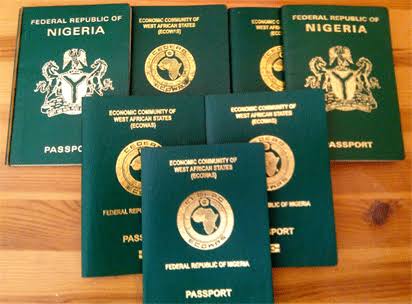It is a truism that many intending international travellers went through tough times in the year 2021 while trying to obtain passports from the Nigeria Immigration Service (NIS).
While some were lucky to get the international travel document, others remain on the waiting list after going through all the required processes. Similar situation was obtained in Nigeria’s embassies abroad.
It got to a point that the NIS, under the watch of its former Comptroller-General, Mohammed Babandede, halted applications for new and renewal of passports to enable the service to clear backlogs of passport applications.
In its bid to ensure enforcement of the directive, the service shut down all payment portals from May 18 until June 1 and sent Task Force teams to all passport offices to enforce the clearance of passport backlogs.
Consequently, Deputy Comptrollers were deployed to all passport centres to monitor the process and ensure the directive was followed.
However, in spite of the measures, difficulties in accessing passports persist.
Recently, a report from Nigerians in Diaspora Organisation Europe, (NIDOE), Italy Chapter, indicated that more than 1.5 million Nigerians living in Europe needed passports.
Also, the Nigerians in Diaspora Network (NDN) staged a protest in Oberhausen, Germany, over passport scarcity, according to reports widely publicised on social media.
The NIS blamed the scarcity on emergence of the Coronavirus (COVID-19) that surged in 2020
The service explained that when the lockdown that resulted from COVID-19 eased, what it witnessed was geometric turn-in in passport applications.
It also attributed its inability most times to meet its six weeks timeframe for fresh passport issuance and three weeks for re-issuance to challenges posed by the National Identity Management System (NIMC).
The NIS claimed it always got delayed responses from NIMC when enquiries were filed.
A new circular recently emerged from the NIS in Lagos. barring the management of the service from speaking to journalists. Also, a circular barring journalists from exclusive interviews with Passport Control Officers (PCOs) was released in November 2021.
Speakíng with newsmen before the circular was issued, the Passport Controller, Lagos Passport Command, Mrs Milka Musa, said that difficulties in getting passports were caused by the COVID-19 pandemic, which kept the world at standstill during the lockdown.
“When the lockdown was eased, what the NIS witnessed was a geometrical growth in passport applications,” he said, adding that the service was working hard to ensure a state of equilibrium was achieved.
A banker, who preferred to remain anonymous, attributed the difficulty in getting passports to corrupt elements both within and outside the service.
According to the banker, such corrupt elements intentionally create artificial scarcity of the passports to push up the cost.
For instance, the official price for a 64-page Nigerian passport with 10-year validity period is N70, 000, while that with five years validity is N35,000
Applicants for the new 32-page passport with a five-year validity period are to pay N25, 000.
However, some applicants part with as much N40,000 to get the 32-page passport with five years validity instead of N25,000, while the 64- page passport with 10-year validity is gotten by some for as high as N250, 000.
The Federal Government, through the NIS, has warned Nigerians to stop patronising touts and when applying to curb the trend.
According to the government, payments for Nigerian passports have been digitised, which means that applicants can apply and pay for international passports online
The Minister of Interior, Rauf Aregbesola, made this known during the rollout of the Enhanced e-Passport with Polycarbonate Data Page and other security features in Ibadan, recently.
On ways to tackle the challenges to prevent bottlenecks in 2022, the Chairman, Amuwo Odofin Local Government, Mr Valentine Buraimoh, urged the Federal Government to reduce procedures in passport application.
“For example, the official time to procure a fresh passport should be reduced from 6 weeks to 7 days. “The time for renewal should be reduced to three days,’’ Buraimoh said.
The council boss said there was a need for NIS and Nigerian Identity Management Commission (NIMC) to have a smooth relationship.
“NIS always blames NIMC for not confirming applicants’ NINs number sent to NIMC for confirmation on time. NIMC also said NIS refused to use the right channel by NIMC to seek information needed…what is that?’’ Buraimoh said.
The former chairman, Insurance Industry Consultative Council, Mr Mufutau Oyegunle, said it was time the NIS started to name and shame corrupt officers after three consecutive warnings.
“There is need for drastic measures to stop corrupt officials within the service,’’ he said.
A migration expert, Mr Alo Francis, advised the federal government to permit the NIS a window to utilise part of the money realised to produce booklets.
According to Alo, this will cushion the shortage of passport booklets in Nigeria.
But, the Acting Comptroller-General (CG) of the NIS, Mr Idris Jere, stated at a virtual press conference on New Year’s Day that the service received 45,000 booklets on Dec. 31 last year.
According to Jere, the booklet will help to clear the backlog of applications within and outside the country for international passports.
The acting CGI charged Nigerians to make use of the six-month window to renew their passports before expiration so as to help the applicants and the NIS in terms of logistics to get passports ready for them before such vital documents expire.
